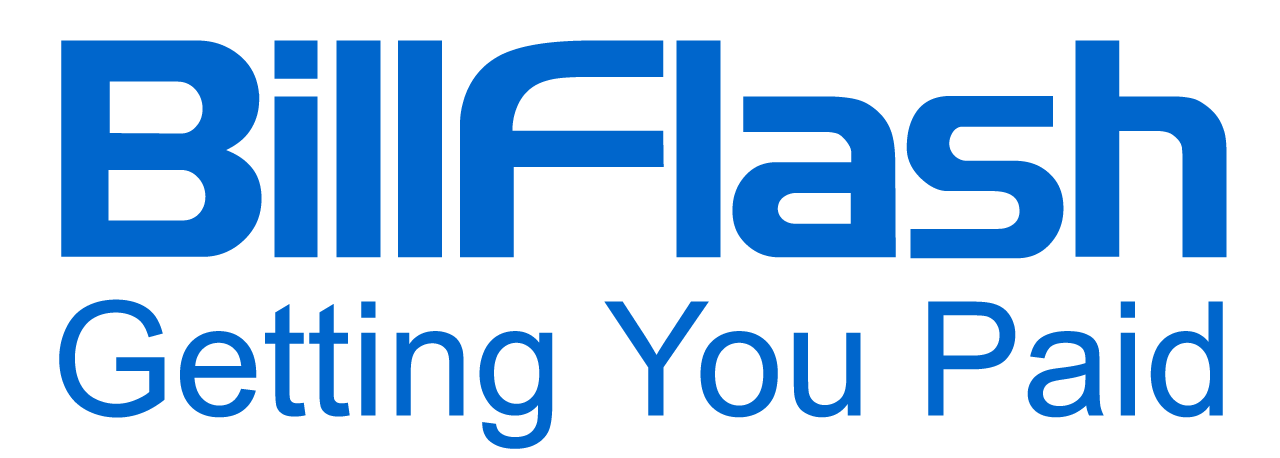Revenue integrity is crucial in protecting a healthcare organization's financial health. Learn more as we explore what it entails!
Revenue integrity is important for protecting a healthcare organization's financial health. In fact, it is more than just ensuring accurate claim reimbursements. It involves an organization-wide commitment to regulatory compliance, accuracy in clinical documentation, and emphasizing optimizing efficiency in revenue-focused workflows.
In practice, revenue integrity comes about through active improvement programs aimed at continuously enhancing standards around clinical care, charge capture, coding, billing protocols, and auditing. The goal becomes proactively targeting revenue leakage points across connected departments through regular evaluations and policy enhancements. Expanding those principles practice-wide fosters a culture where all staff understand how their day-to-day responsibilities fundamentally tie into the practice's revenue health.
The focus of today's blog is to spotlight a few actionable solutions that can improve revenue integrity integration into more comprehensive healthcare operations through the latest protocols, technologies, training sessions, and performance incentives.
Understanding Revenue Integrity in Healthcare

Revenue integrity in healthcare refers to the accuracy and compliance of all claims processes. This guarantees healthcare organizations receive full and legitimate reimbursement for services provided. It falls under the revenue cycle management umbrella and centers on ensuring services delivered are accurately reflected in billing processes. The goal is to capture 100% of compensation owed to a healthcare organization as accurately and efficiently as possible. This requires a coordinated focus on patient intake details, validating paperwork, properly encoded services, submitting accurate claims, being denial-ready, and following up on unpaid claims for full reimbursement realization.
If there are any revenue leaks from inaccurate documentation, coding errors, avoidable denials, collection gaps, or non-compliance, this can quickly undermine a practice's bottom line. These gaps may significantly cut total patient revenue through underpayments, overpayments, or write-offs. By taking a full view of revenue integrity across clinical and financial operations, healthcare operations can strengthen documentation, billing accuracy, and denial mitigation, realizing millions in recovered revenue year-over-year.
To control growing financial pressures, many healthcare operations are investing in new technologies centered on revenue integrity and compliance automation. This, in turn, maximizes appropriate reimbursements while eliminating waste from manual billing tasks.
The Role of Healthcare Operations in Revenue Integrity
A healthcare organization's daily operations naturally cross with components of revenue integrity. When accountability spans isolated revenue cycle activities into connected operational areas, healthcare organizations see better results. But when revenue integrity is viewed as only the revenue cycle department's concern, gaps will start to come about that will originate from operations policies and practices.
As staff can better recognize how impactful documentation and administrative accuracy are as they pertain to the healthcare organization's fiscal health, preventable issues will be identified and resolved before claims submission. Revenue integrity goes from a financially-centered concept into a practice-wide operational priority targeting reduced revenue leakage.
Benefits of Integrating Revenue Integrity
Revenue integrity integration done the right way delivers measurable growth in financial, operational, and regulatory performance. Fixing documentation, coding, billing, or collections matters early costs less than pursuing denied, underpaid, or unresolved claims. Full lifecycle coordination also highlights previously unnoticed leakage and waste, allowing them to be recaptured at high margins. Compliance also grows more consistent, with across-the-board visibility into claim accuracy, lowering regulatory risks that might lead to fines if not addressed.
On the operations side, consistent training and updated protocols promote greater first-time claim approval rates. This is due to more precise coding, fewer submission errors, and better pre-authorization recordkeeping. With the right processes and a high level of cross-team awareness, this will allow for faster payment cycles with fewer write-offs or appeals needed. Between improved staff competencies, enhanced interdepartmental communication, and revenue integrity technologies lowering administrative responsibilities, integrated frameworks greatly improve operational efficiency.
Challenges in Integrating Revenue Integrity
There are certainly benefits of integrating revenue integrity. However, carrying out the vision of full revenue integrity integration can be challenging. An incremental and not transformational approach can halt a practice's coordinated efforts, especially between the revenue cycle and clinical departments.
Healthcare providers may view cycles as a distraction and not a patient care priority unless there are incentives. Technological gaps or a lack of real-time analytics also hurt data transparency. Using multiple documentation formats can frustrate coders, and overloaded billers will have a difficult time reviewing each claim. As a result, accuracy will suffer in a healthcare environment that experiences inadequate staffing, poor training, and misaligned metrics/compensation programs.
Navigating these roadblocks in any healthcare operation also requires practical strategies. Staffing models with specialized pre-authorization and denial mitigation roles reduce tie-ups while raising competencies and accountability. Updated IT systems and business intelligence tools boost interactions, real-time visibility, automation to cut waste, and data sharing to navigate policies. Better training and modified performance incentives also help to foster buy-in at each level. With planned coordination bridging the gaps, healthcare organizations can overcome integration barriers.
Case Studies in Action

Jacksonville Children's and Multi-Specialty Clinic (JCMC) has made revenue integrity a priority by bringing in leaders with deep revenue cycle and compliance knowledge. Through consistent reviews of billing, coding, contracts, as well as other processes, they were in a prime position to ensure full compliance and that no revenue was left on the table.
Key Wins:
- Reduced risk of failing to comply with medical billing regulations
- Discovered and addressed several overlooked revenue opportunities in documentation and billing
- Thorough auditing of the entire revenue cycle identified issues to tighten up to boost revenue realization
Lessons Learned:
- Investing in dedicated revenue integrity roles, even for mid-sized healthcare operations, pays off
- Complete revenue cycle audits protect against compliance violations and missed revenue
- Collaboration between finance leaders and providers is key to optimizing documentation and coding for revenue gains
Best Practices:
- Proactive assessments of billing processes and not reactive denial response
- Ongoing training helps providers seize appropriate service levels
- Automating payer contract clarity provides accurate revenue projections
- Monitoring provider productivity identifies documentation improvement needs
JCMC's commitment to revenue integrity, hiring specialized roles, and cross-team collaboration made way for significant financial gains, compliance assurances, and process optimizations – proving that integrative initiatives reducing leakage can and will make a difference.
Technology's Role in Revenue Integrity Integration
Technology hindrances will be found in legacy systems. However, deliberate IT modernization motivates healthcare practices to take revenue integrity to higher levels. You can do this through:
- Intelligent workflow automation managing repetitive administrative tasks that allows staff to be reassigned to higher-value responsibilities
- Cloud-based analytics incorporating clinical, financial, and billing data streams into dashboards identifying opportunities for optimization
- Automated claims scrubbing to identify documentation gaps or coding errors before submissions
- Denial management modules that allow for the best coordination around workflows between departments
Technology does play a role in the success of revenue integrity integration. However, there must be a willingness to optimize processes within the healthcare operations.
Steps to Integrate It Into Your Healthcare Operations
With benefits clear and supporting technologies continuing to appear, the responsibility falls on healthcare organizations to take action and integrate revenue integrity across operations by taking the following steps:
- Get commitment from your healthcare practice's executives, securing support, cultural alignment, and the resources your practice needs to enable deep integration
- Document measures and goals for revenue integrity linked to clinical and financial performance indicators
- Establish centralized reporting and automated analytics that provide real-time visibility into revenue shortfalls and help to identify the causes
- Perform routine documentation, coding, and claims audits pinpointing common flaws related to operations-related issues
- Have mandatory training for the entire staff that clarifies how their responsibilities tie into revenue integrity
- Tighten patient access and pre-authorization tracking procedures to prevent documentation gaps
Fully realizing these solutions and carrying out these steps will rely on cultural shifts and accountability, going beyond revenue cycle connections into wider operational areas.
Future Trends to Watch Out For

As integration momentum grows, the future does look bright when we talk about improving healthcare financial stability through enhanced revenue integrity. The transition toward value-based reimbursement models and risk-sharing arrangements will increase documentation, coding, and billing accuracy and precision imperatives. These are all key pieces of revenue integrity initiatives.
The latest innovations will also empower more hospitals and health systems to establish dedicated revenue integrity divisions, consolidating key components into a wider operations scope. With increasing financial pressures and difficulties across healthcare, revenue integrity integration needs will only grow more prominent in the years ahead.
The Bottom Line
Reducing revenue leakage depends on speeding up the shift from revenue integrity as a mainly finance-focused initiative toward a full healthcare operation initiative that needs the attention and support of leadership, beyond revenue cycle management leaders. This relies on urgent action to break apart the gaps across clinical, financial, and technological departments. There also needs to be integrated data platforms, decision support dashboards, as well as workflow enhancements that will ensure all teams are on the same page.
With stakes higher than ever, BillFlash is the partner you need to provide a solution tailor-made to enable compliant revenue cycle excellence, minimizing leakage for better fiscal health tomorrow and beyond.
Schedule a demo with us today!

